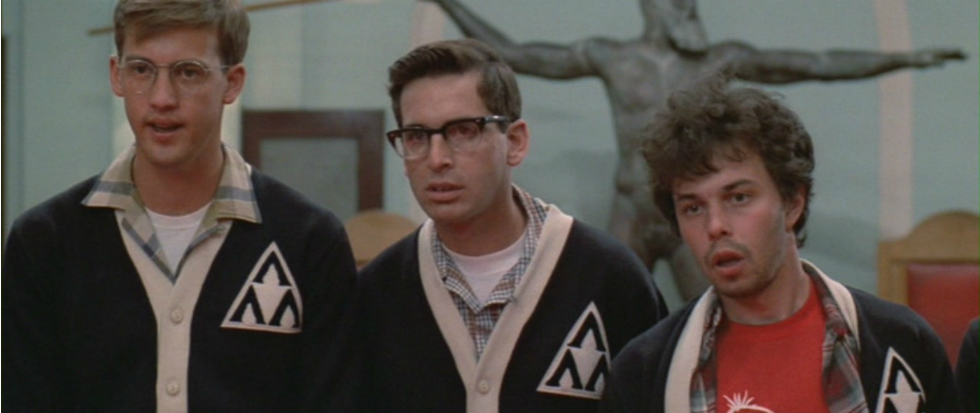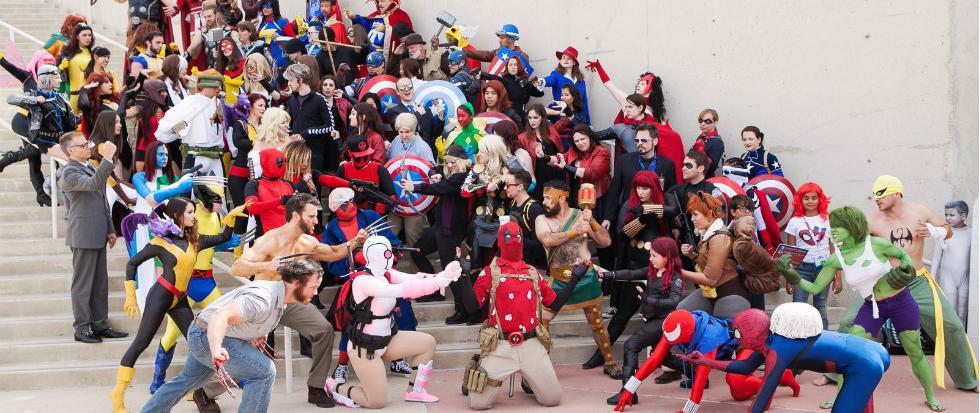
You Are What You Hate
This column is a reprint from Unwinnable Monthly #82, the Hate issue. If you like what you see, grab the magazine for less than ten dollars, or subscribe and get all future magazines for half price.
———
“Being a geek,” says screenwriter and actor Simon Pegg, “is all about being honest about what you enjoy and not being afraid to demonstrate that affection. It means never having to play it cool about how much you like something. It’s basically a license to proudly emote.”
It is about love: love of a hobby or a story or a game. Fans express their love by creating fics and vids and cosplay galore, and popular culture sometimes represents them as being so thoroughly infatuated with the object of their fandom that they eschew traditional romantic and sexual relationships altogether. That’s a whole lotta love!
Now the rest of the world is starting to flirt with things that were traditionally geeky. Once obscure Marvel superheroes are making big box office bucks, formerly cerebral hard science fiction properties like Star Trek are now action blockbusters and the San Diego Comic-Con has become an important event for mainstream Hollywood stars. As such, geek culture is in the midst of an identity crisis and, in certain circles, being a geek seems to be becoming more about what you hate than

Of course, prototypical geeks have always worn their disdain for pockets of mainstream culture on their sleeve. They dislike all flavors of “sportsball” and adamantly refuse to Keep Up with the Kardashians. Geeks have always defined themselves against the Jocks and the Popular Kids. In fact, it could be argued that this opposition was imposed onto geek culture by the mainstream, that geek culture only coalesced in the first place as a response to this rejection from their peers.
Similarly, rivalries within fandoms have always been a staple of geekdom. Think: videogame console wars, Marvel vs. DC, Star Wars vs. Star Trek or fans who “ship” (root for the romantic pairing of) different characters in their favorite television series. This is like nerd sports, a healthy form of friendly competition that brings people together even as they fight over their favorites.
However, over the last year, certain segments of geek culture have taken an angry turn. #GamerGate’s campaign of harassment and threats aimed at female game developers and writers comes to mind, as do the racist and sexist comments aimed at Leslie Jones in the wake of the female-lead remake of Ghostbusters, the rants about “fake geek girls,” and the complaints over the appearance of a black stormtrooper in Star Wars VII and a female lead in Rogue One. Somewhere along the line, the “defense” of geek culture morphed into an offensive aimed at anyone perceived as “threatening” something or someone on its “turf.”

Why is this happening?
I sense a lot of fear in the hateful corners of fandom nowadays. Fear of change, fear of irrelevance, fear that the space where they once felt free to be themselves is opening up and might no longer be so safe anymore. It is the same fear, on a smaller scale, as the one that is currently driving the Presidential campaign of Donald Trump; as the makeup of Geek Nation grows more diverse in terms of race, gender and sexuality, there are those who feel that they are being left behind, who want to “Make Nerds Great Again” via a toxic combination of bullying, bragging and bluster.
Geeks who embrace the hate wind up draining all of the joy out of the things they supposedly love, both for their fellow fans and for themselves. Let’s face it: which sounds more fun? Enjoying your favorite movies, TV shows, comic books and videogames? Or arguing about “feminazis” and “social justice warriors” on Twitter alongside a bunch of misogynists and white supremacists?
Science fiction author John Scalzi offers a better vision of what it could mean to be a geek if only we could push past the fear and hate:
Some people love only one thing. Some people flit between fandoms. Some people are positively poly in their geek enthusiasms. Some people have been in geekdom since before they knew they were geeks. Some people are n00bs, trying out an aspect of geekdom to see if it fits. If it does, great. If it doesn’t then at least they tried it. Many people believe geekdom is defined by a love of a thing, but I think — and my experience of geekdom bears on this thinking — that the true sign of a geek is a delight in sharing a thing. It’s the major difference between a geek and a hipster, you know: When a hipster sees someone else grooving on the thing they love, their reaction is to say “Oh, crap, now the wrong people like the thing I love.” When a geek sees someone else grooving on the thing they love, their reaction is to say “ZOMG YOU LOVE WHAT I LOVE COME WITH ME AND LET US LOVE IT TOGETHER.”
Life is much more fulfilling when we share what we love with one another. Let’s erase the hate and get back to what we do best: geeking out.





